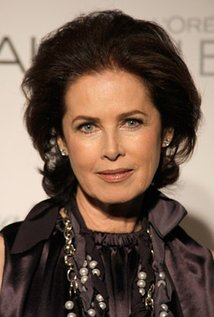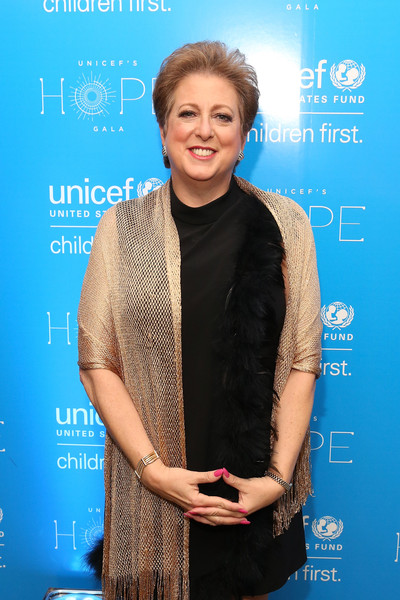We have found a new home! Kindly visit this link in our new website here: https://www.denver-frederick.com/2017/07/21/dayle-haddon-the-founder-and-ceo-of-womenone-joins-denver-frederick/
The following is a conversation between Dayle Haddon, the Founder and CEO of WomenOne, and Denver Frederick, Host of The Business of Giving on AM 970 The Answer in NYC.

Dayle Haddon © IMDb
Denver: When your first act was that of a supermodel, gracing the covers of over 100 magazines, and being the only person to have ever had contracts with the four major beauty companies: Max Factor, Revlon, L’Oreal, and Estee Lauder, it’s a little hard to imagine that your second act could be as successful. But for my next guest, it has been… and, may I dare say, more meaningful as well. She was recently the recipient of the Philanthropy Award by the UN Women for Peace Association and was nominated as one of the Top 50 Philanthropists by Town & Country Magazine. She is Dayle Haddon, the founder and CEO of WomenOne. Good evening, Dayle, and welcome to The Business of Giving!
Dayle: Thank you so much. I’m so happy to be here, Denver.
Denver: Tell us about WomenOne and the mission and goals of the organization.
Dayle: WomenOne is a non-profit that I founded when I saw that there was an opportunity to make a difference for girls. I had been with a larger organization, and I just felt that girls education was a game changer. At WomenOne, that’s what we do. We find girls most at risk, and we get them into school and get them educated so that they have their place, their chance, their voice in the world.
Denver: Let me pick up on what you just said there. There is no shortage of challenges out there, Dayle, and you could have picked any one of them. But you just said, educating girls was a game changer. Why do you believe this is the one that can have the greatest impact?
Dayle: Being privileged to have been a UNICEF Ambassador for so many years, I had wonderful opportunities — fascinating opportunities to travel the globe, especially Africa, but also South America — to really witness the works that they do. And what they do is really important. And it is very hard to pick, whether it’s clean water or food or vaccinations, or a myriad of other things. But I felt that education– the studies that I did– education changed the other ones. It had the biggest impact. And educating a girl– The UN says that when you educate a girl, it’s like educating seven people because her impact on her family and the community is so huge. As a matter of fact, Muhammad Yunus said that he focuses on women because he says in his book, Banker to the Poor, that when he gives to a poor man, the first thing he does is spend it on himself.
Denver: Right.
Dayle: But he finds that when women have their first earnings, first it’s spent on her children, then her home, and then the community.
Denver: I think that women plow back 90% of what they earn into the family, while men only do about 40%.
Dayle: It’s interesting, isn’t it? I think it’s that nurturing quality as well. But a new thing that I just found out from the book, Drawdown. It’s extraordinary about the environment that educating a girl has a number six positive impact on the environment. When a girl is educated, she positively affects the environment.
Denver: What does it mean when a girl gets educated? What does it mean to her children… or the number of children she has… or when she gets married? What are some of the ramifications of getting a girl an education?
Dayle: An educated girl usually will have less children, and they will be healthier. She is the first teacher in a way, so her children will probably be educated. That’s just some of the positive effects. Her choices will be better. There are less occurrences of HIV-AIDS, when a girl is educated. Less occurrences of violence when a girl is educated. As a matter of fact, when I was in Turkey, I was in a room that was educating women over 60– the first time that they were learning to read. And one woman came in late and was so excited, and we were saying, “What happened? What happened?” She said, “Because I can read now, it’s the first time I could get myself to the hospital by myself because I could read the signs on the bus.” You don’t really think about that.
Denver: Yeah. But it is very, very sweet and very important. As you said, you were a UNICEF Ambassador. You did that for about 12 years, and you traveled the globe, and you really got involved. You were not staying in the cushy hotels, but you were out there getting your hands dirty right on the front lines. Where along that journey, Dayle, were you moved to start up a nonprofit and to launch what was to become WomenOne?
Dayle: Well, I thought about it a lot, but I wanted to get a lot of experience under my belt. I couldn’t pick a better organization than UNICEF to learn and to be in that UNICEF family. Some of them are saints on the ground that are working there. But it was in a trip in Angola, and I was in a rural clinic with a group of people. And women had walked all night with babies strapped to their backs to get medical attention because it was the only place for medical attention for miles around. And one of the doctors pulled me aside and said, “Wow! Could you help us?” and I went, “Yeah, sure!” And he said, “We are missing two microscopes. So if you could just help us get those two microscopes.” I said, “Yeah, yeah, no problem!” So I went up to the organization, I said “Could you give them two microscopes so they can do their job better?” And they looked at me and they went, “Dayle, that is way too small for us.” So at that point, I just thought: Oh my gosh, it’s not too small for those women that walked all night! So there is room for a smaller organization to work alongside the larger organization that is dealing with bigger problems… and to work together.
Denver: Very smart.
Dayle: And that’s when the idea of WomenOne was born.
Denver: There you go. Well, quality education and gender equality. Now, those are two of the United Nations 17 sustainable goals. How is the world doing in seeing that girls are getting a quality education and are being provided the same educational opportunities as boys?
Dayle: The numbers differ a little bit, but it’s about 65 million girls out of school globally still. So it’s still a problem, as is quality education. Basically, the tendency — traditionally in many of the homes, especially in the developing countries — the finances that they have will go to a boy, not to a girl. And a girl that turns age 12 or 13 is where we approach the girl and we try to keep that girl in school. For every year that we can keep her in school, her earning power will go up. The GDP will go up for the country… Generally, a girl that age will be either brought back into the family to work; she will be married off, or she will be sold off. We try to stop that as best we can, or we support and work with the community to help them realize why the community will benefit and how it will benefit if they keep their girls in school.
Denver: We’re doing pretty well, I guess, across the globe with primary education, but as you suggest, when they get to the secondary education, that’s where the fall off really occurs.
Dayle: The government, a lot of times, pays for primary but not secondary. So that comes out of the family pocket, and that is the challenge. So you need organizations like WomenOne that are around. And there are a few of us, quite a few of us, that really supplement that. It’s coming from the private sector to help support that because sometimes you think: Why am I going to help a girl so far away? I live in America or whatever. But actually the world is getting smaller and smaller, and it is extremely important. It is essential, as a matter of fact, that we create pockets of sanity, pockets of calm all over the globe because eventually we will be affected by that lack if it doesn’t happen.
Denver: Yeah, you are so right. It was really striking to see how many of these girls, particularly in Sub-Saharan Africa, get pregnant or give birth between the ages of 15 to 19. And then to compound that situation, the school often stigmatizes them and doesn’t let them go back to school. Correct?


